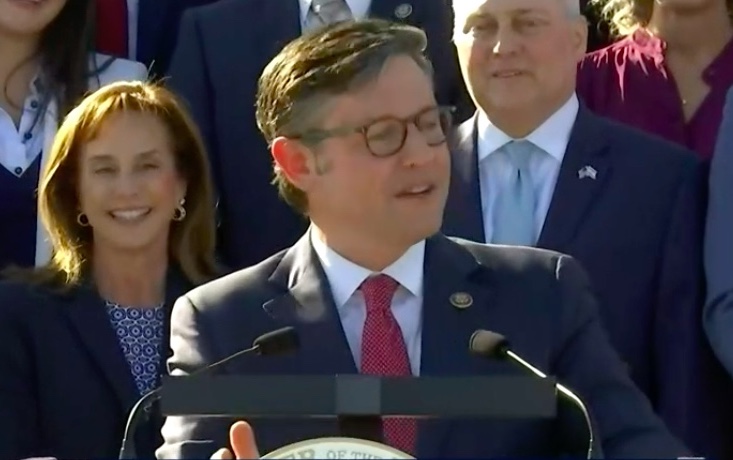Following Wednesday’s election of Mike Johnson (R-LA) to Speaker of the House, attention turned to a slew of spending bills that Congress needs to pass.
Looming over Congress is a November 15 deadline to pass a 2024 fiscal year budget to avert a government shutdown. On September 30 Congress passed a 45-day stopgap measure to keep the government open temporarily while debate over spending continued—but the House quickly got bogged down in a three-week battle over choosing a new Speaker, after lawmakers passed a motion to vacate brought by Rep. Matt Gaetz (R-FL) against then-Speaker Kevin McCarthy (R-CA), in great part over McCarthy’s role in forwarding the stopgap measure.
Party infighting among House Republicans grew in earnest after McCarthy struck a budget deal with President Biden in May. It prevented the government from defaulting on the nation’s debt but raised the ire of conservative hardliners like Gaetz and other members of the far-right Freedom Caucus.
In fact, September’s stopgap legislation passed in the House with more Democratic than Republican votes.
Following McCarthy’s ouster, House Republicans came under pressure to move quickly to choose a new leader from members of their own party in the Senate amid not just the mid-November stopgap deadline, but also calls to approve appropriations for additional military aid to Israel and Ukraine.
At the same time, Biden has also been pressing for $106 billion in new spending to aid Israel and Ukraine, and to strengthen enforcement at the U.S.-Mexico border.
Despite the broad bipartisan majorities in the House and the Senate to continue funding Ukraine’s war against Russia, it became a central sticking point in the fight, with opposition growing against Ukraine aid particularly among Republicans. And currently there is little consensus among Republicans—even in the Senate—around whether or not broadly-supported aid to Israel in its war against Hamas ought to be linked to aid for Ukraine.
Meanwhile, House Republicans are pushing for 12 separate funding bills to keep federal agencies running through September 30, 2024, which is the end of the fiscal year. Such a move requires tight negotiation between the Republican-controlled House, which has a five-seat majority, and the Senate, which has a two-vote Democratic majority.
“We are going to deliver an aggressive schedule in the days and weeks ahead,” Johnson told reporters after being sworn in as Speaker.
PHOTO: Speaker Mike Johnson on Capitol steps, Wednesday
Read more exclusive news from Political IQ.


